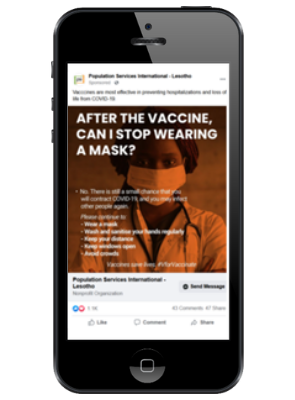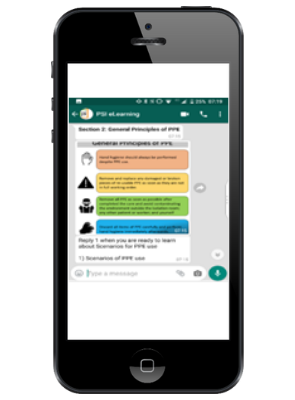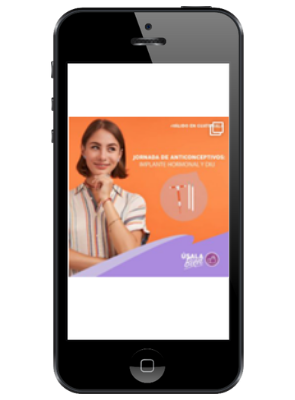How PSI is leveraging mobile phone technology to better reach health consumers and providers
Our phones can orchestrate so many aspects of our lives – from banking to dating to figuring out when it’s going to rain. It’s no surprise that healthcare is one of the growing uses for smartphones as our world becomes increasingly interconnected.
Across the 40+ countries in which PSI works, mobile phones are becoming more ubiquitous: in 2018, three quarters of the African continent had a SIM connection. In the Asia-Pacific region, there are 3 billion unique mobile subscribers; in Latin America, 73% of the population has a mobile phone.
So how exactly are mobile phones helping to expand access to essential, quality healthcare worldwide? Through mobile technology’s
Here are three ways that PSI is leveraging digital mobile connections to reach consumers, train providers, and build stronger health systems: ability to reach larger populations, reduce costs and inefficiencies, and personalize care, PSI’s Digital Health team is helping support health systems worldwide through personalized information, quality services, and increased access to health products and information.

Influencers in Masks
Using social media to counter vaccine hesitancy
While COVID-19 vaccine distribution is continuing to ramp up globally, vaccine hesitancy still prevails. Due to the novelty of the vaccines, concerns about side effects, distrust of medical professionals, and more, health professionals worldwide have to counter stigma, rumors, and distrust of these vaccines to reach vaccine distribution goals.
While social media can cause the spread of many myths and misinformation about vaccines, it can also act as a venue for trusted information and social and behavior change (SBC) interventions. Through a partnership with Facebook, PSI is running a series of locally adapted multimedia advertising campaigns that use consumer insights and ad performance to pinpoint the messages and influencers best suited to address the critical barriers to vaccine uptake. Since January 2021, PSI and partners have reached more than 100 million people with vaccine confidence messaging.
The 411 on PPE
Safety training via WhatsApp

At the onset of the pandemic, Ministries of Health were using as many venues and channels as possible to share information on how to prevent the virus from spreading: wearing a mask, washing one’s hands, staying at home whenever possible. But the challenge intensified when it came to figuring out how to get health providers the most up-to-date information on how to serve their clientele safely and effectively with the health solutions they needed during the pandemic. This included everyone from community health workers, to clinic staff, to pharmacy technicians. To combat this challenge, PSI turned to the messaging platform WhatsApp.
In Kenya, two-thirds of internet users connect via smartphone and nine out of 10 mobile internet users have WhatsApp. So, PSI worked with the Ministry of Health to tailor curriculum, delivered through the app, on epidemiology, infection prevention & control, occupational health and safety, and case management -thus training health providers on how to continue to reach those in need. To reach those without smart phones, PSI also created a training program using interactive voice recognition, or IVR, for those with mobile phones.

Úsala Bien isn’t your average sex-ed class
Reaching teens via social media with contraceptive info
The old: sex education class in a crowded gym, led by a tired health teacher, where no one pays attention.
The new: sex education, advice, and reproductive health referrals on Instagram.
To engage and educate teens around their sexual and reproductive health, we’re meeting them online. Úsala Bien, or “use it well” in Spanish, is a social media program that is helping increase access to contraception for youth across Central America and the Caribbean. The program uses social listening, the act of collating online sentiment around a specific topic, to figure out how best to message online sexual education topics for teens. For example social listening helped PSI’s network member, PASMO, determine that for teens in the region, no one was using the phrase “family planning” given these teens were not focused on having a family. By slightly updating their messaging to use “contraceptives” instead, they could better reach more teens with the information they need to have safe and healthy sex.



